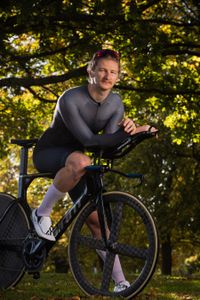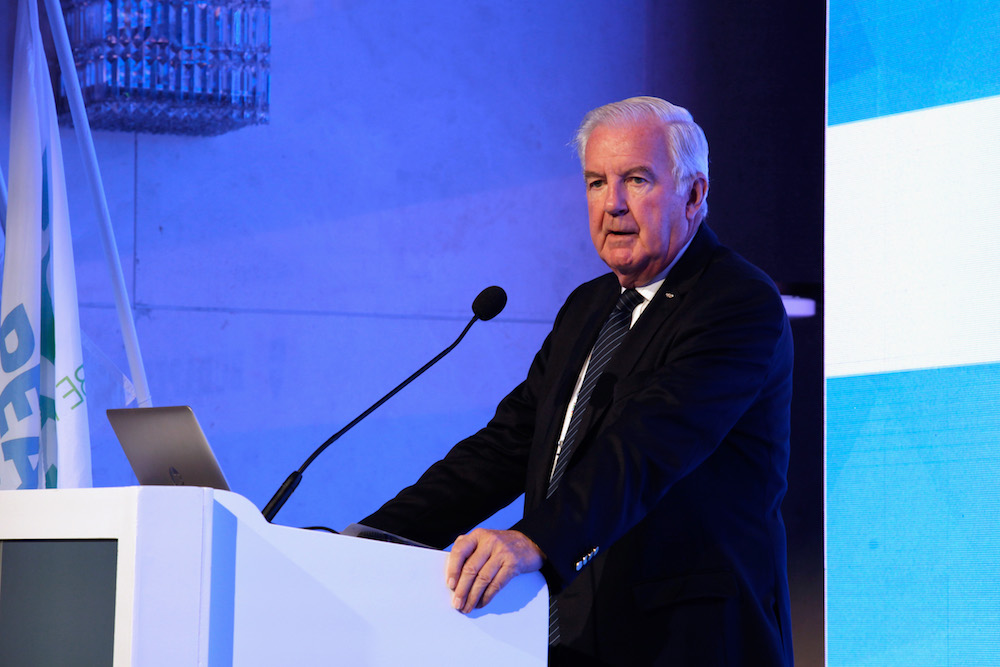Head of WADA says anti-doping campaigners 'refuse to accept reality' of Chris Froome salbutamol case
The Movement for Credible Cycling raised concerns over WADA investigations, including Chris Froome's adverse analytical finding


Head of WADA Sir Craig Reedie has responded to calls for him to resign (Photo: Getty Images)
The latest race content, interviews, features, reviews and expert buying guides, direct to your inbox!
You are now subscribed
Your newsletter sign-up was successful
The president of WADA has responded to criticism after cycling anti-doping campaigners called for him to resign.
Sir Craig Reedie, head of the World Anti-Doping Agency (WADA), was attacked by the Movement for Credible Cycling (MPCC) last week over his organisation’s response to a slew of doping controversies.
In an open letter the MPCC called for Reedie’s resignation, raising issue with WADA’s enforcement in the Operation Puerto doping scandal, Chris Froome’s salbutamol case and the legality of Tramadol.
Reedie has now responded to the criticism in a letter back to the MPCC, accusing the organisation over oversimplifying and misunderstanding WADA’s work.
>>> Tramadol could provide performance enhancement for cyclists, study finds
In the letter, Reedie said: “I would like to point out that your letter was received on October 24, ironically the same day as WADA won a significant victory for clean cycling in securing enhanced bans for three of your sport’s most notorious cheats.
“The decision by the Court of Arbitration for Sport (CAS) to uphold our appeal, which was supported by the UCI, USADA and everyone who cares about clean sport, has certainly undermined your assertion that WADA is not upholding the rights of clean athletes.
The latest race content, interviews, features, reviews and expert buying guides, direct to your inbox!
“In fact, nothing could be further from the truth – in everything we do, WADA is keeping the athletes to the fore.”
The CAS case in question is that of former manager to Lance Armstrong, Johan Bruyneel, who was banned from cycling for life the day the MPCC letter was sent.
In its letter the MPCC, which was created in 2007 by professional cycling teams concerned that the UCI wasn’t doing enough to combat doping, raised issues with four key WADA investigations.
The first is the legality of the opioid painkiller Tramadol, which is monitored by WADA but is not banned, despite calls from the MPCC for it to be outlawed.
Also raised in the letter is Operation Puerto, a 2006 blood doping scandal that saw hundreds of blood bags linked to athletes seized in police raids.
The MPCC then went on to raise issue with the Chris Froome salbutamol case, after the Team Sky rider delivered an adverse analytical finding during the 2017 Vuelta a España.
According to the MPCC, the Froome case demonstrated that sanctions are not applied equally after the Brit was cleared of any wrongdoing.
Finally, the MPCC raised issue with the reinstating of the Russian Anti-Doping Agency, which was suspended in 2015 after it was accused of covering up doping.
>>> Spanish court permits release of Operation Puerto blood bags to Italian Olympic Committee
President of WADA Sir Craig Reedie has responded to each of the claims set out in the letter from the MPCC.
Reedie said he will lead WADA until the end of his second term on December 2019, but will happily pass on the leadership then.
On Tramadol, Reedie says there is no consensus among WADA experts that the painkiller should be banned.
Speaking about Operation Puerto, Reedie said: “WADA has been very proactive in this case, invested significant resources since the case emerged in 2006 and has done everything possible to date from a legal standpoint and in every other way, to conclude that sorry episode in a way that secures justice for clean athletes.
“To criticise WADA in this case demonstrates an astonishing lack of knowledge and understanding of what has happened to date.”
>>> Floyd Landis says cycling is not clean in post-Armstrong era
On the Russian Anti-Doping Agency’s (RUSADA) reinstatement, Reedie says it was “the right decision for clean sport and that WADA is in a stronger position because of it.”
He argues that WADA will obtain access to data so can pursue cheaters or can impose harsher punishment on RUSADA in future.
Finally, on the Chris Froome case, Reedie says: “WADA remains convinced that the UCI reached the correct and fair outcome in what was a very complex case.
“Your efforts to over-simplify it, without having knowledge of the voluminous file of the case and both the scientific and legal challenges it raised, demonstrated an unfortunate attempt to case a shadow on WADA’s credibility and an obvious refusal to accept the reality of what happened.”
Alex Ballinger is editor of BikeBiz magazine, the leading publication for the UK cycle industry, and is the former digital news editor for CyclingWeekly.com. After gaining experience in local newsrooms, national newspapers and in digital journalism, Alex found his calling in cycling, first as a reporter, then as news editor responsible for Cycling Weekly's online news output, and now as the editor of BikeBiz. Since pro cycling first captured his heart during the 2010 Tour de France (specifically the Contador-Schleck battle) Alex covered three Tours de France, multiple editions of the Tour of Britain, and the World Championships, while both writing and video presenting for Cycling Weekly. He also specialises in fitness writing, often throwing himself into the deep end to help readers improve their own power numbers. Away from the desk, Alex can be found racing time trials, riding BMX and mountain bikes, or exploring off-road on his gravel bike. He’s also an avid gamer, and can usually be found buried in an eclectic selection of books.
